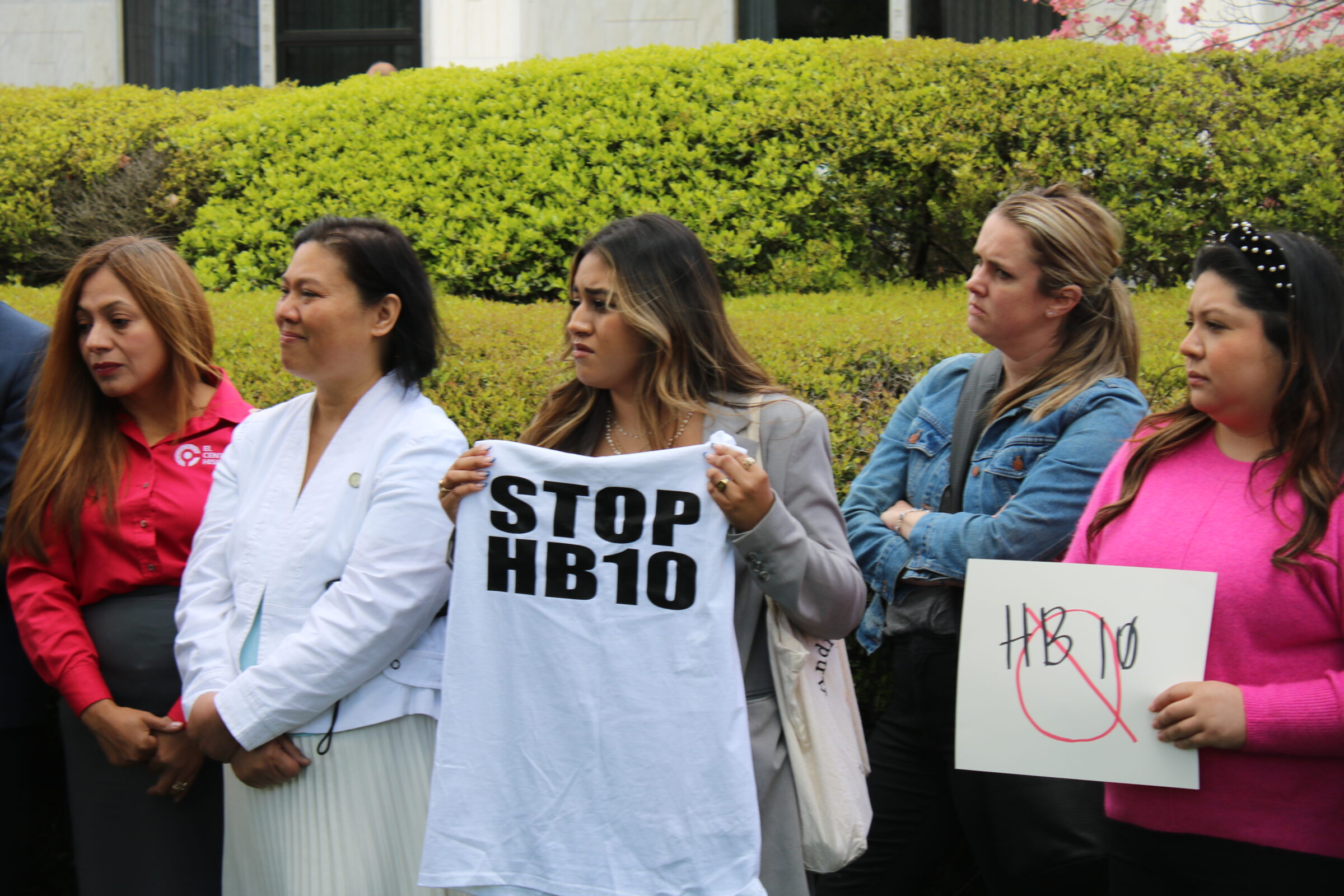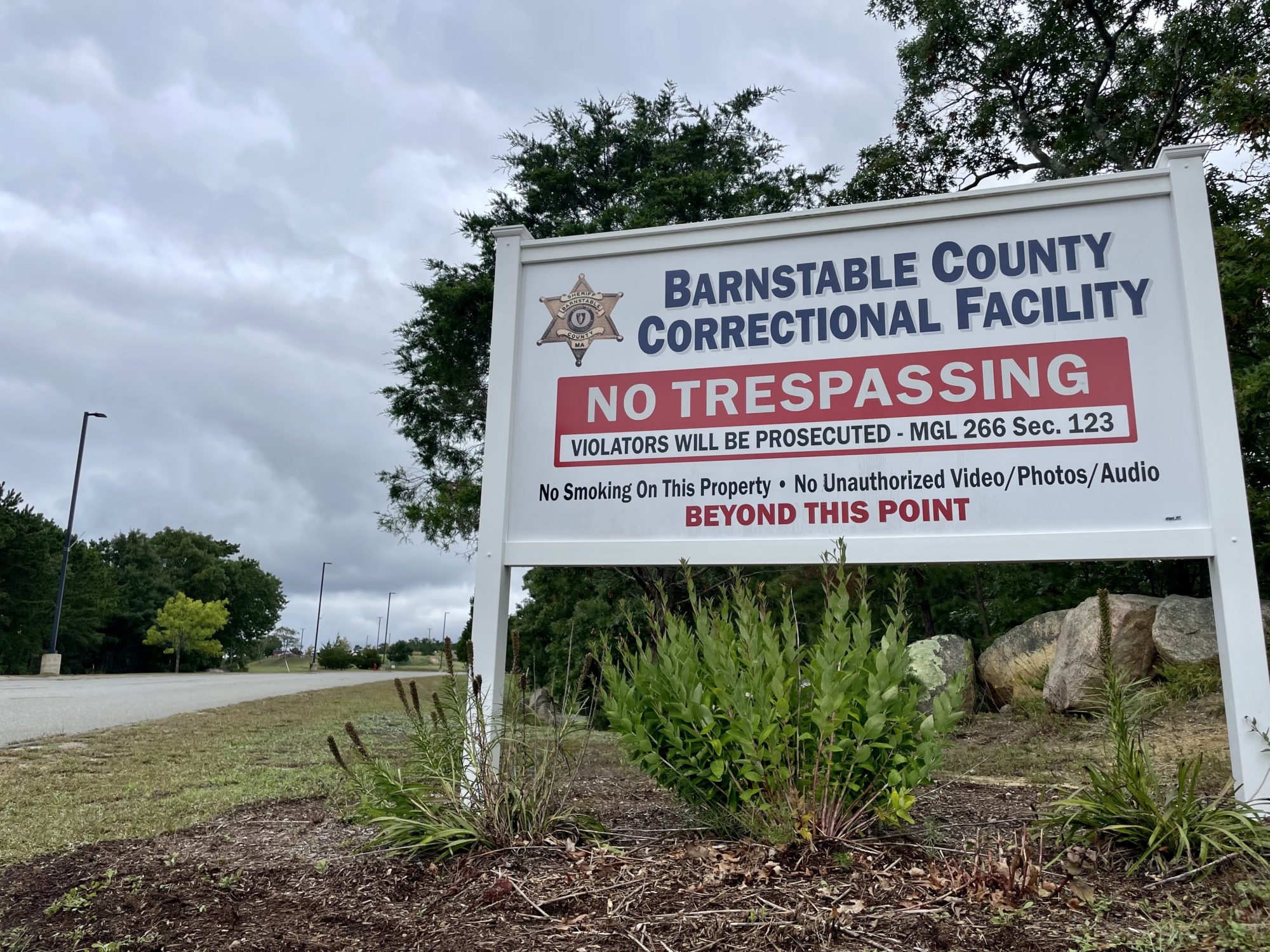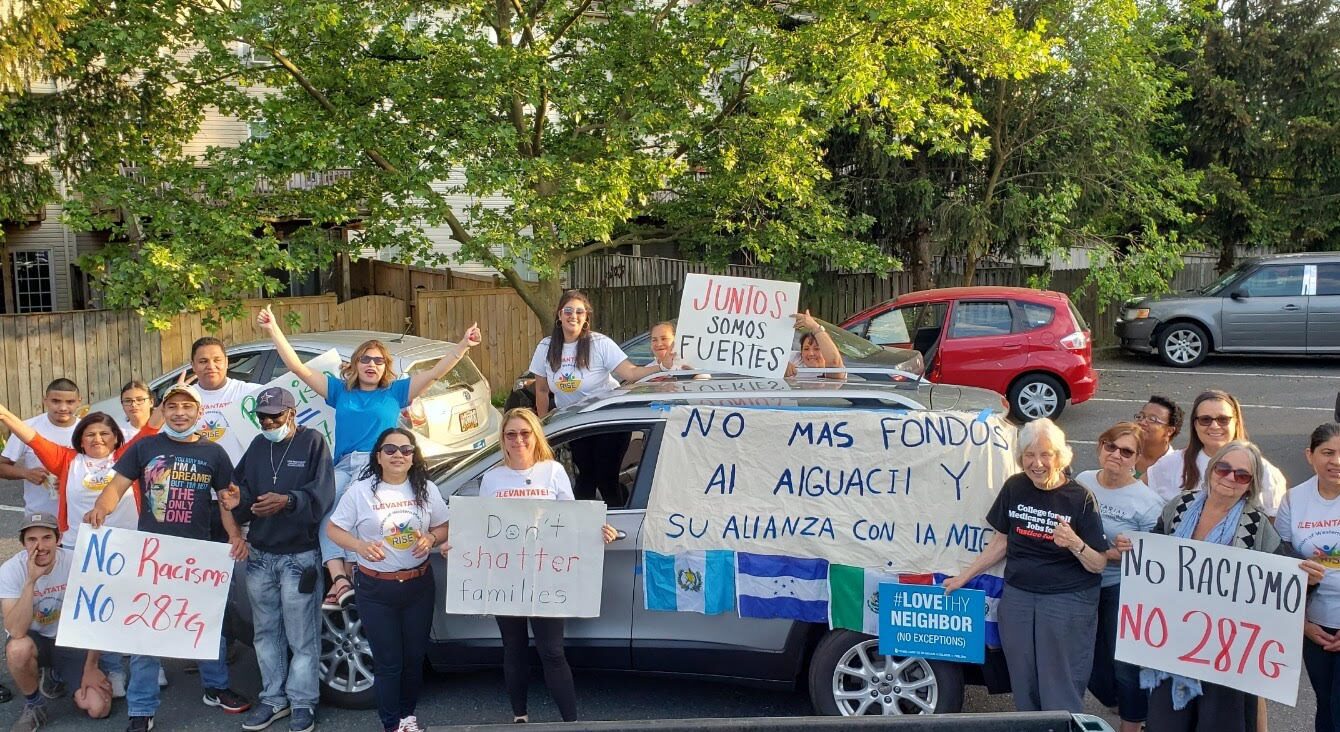North Carolina GOP Is Cracking Down on the Black Sheriffs Who Stood Up to ICE
Boosted by new supermajorities, Republicans are closing in on legislation to mandate more collaboration with ICE and preempt local policies hard-won by immigrants’ rights advocates.
Piper French | June 23, 2023


In 2018, fierce organizing by immigrants’ rights groups led to a sea change in North Carolina: sheriff candidates who promised to stop collaborating with the U.S. Immigration and Customs Enforcement won in five of the state’s most populous counties. All were Black Democrats. Soon, the new sheriffs in Mecklenburg (Charlotte) and Wake (Raleigh) counties severed their contracts with ICE, and those in Durham, Forsyth (Winston-Salem) and Buncombe (Asheville) counties announced they would no longer detain immigrants for ICE without a judicial warrant, sparking immediate releases.
“It was very euphoric,” recalled Stefanía Arteaga, co-executive director of the Carolina Migrant Network, which was closely involved in the organizing efforts. She recalls the relief felt by some of her friends, “not having to be so fearful that a simple traffic stop could lead to a deportation.”
ICE responded with heavy retaliation. It conducted raids across North Carolina, sweeping up over 200 people in just a few days. It was “a time of total panic,” recalls Nikki Marín Baena, co-director of the immigrants’ rights group Siembra NC.
The agency also built a PR campaign to turn voters against Mecklenburg Sheriff Garry McFadden, posting billboards around Charlotte with the mugshots of immigrants who had been released on bond after the sheriff’s department rejected ICE’s requests to keep jailing them. (McFadden secured re-election anyway last year.) And it beefed up its presence elsewhere in the state, recruiting a dozen rural counties into a new form of partnership that authorizes sheriff’s deputies to identify undocumented immigrants and detain them for the agency.
Now ICE is closing in on another long-held goal: a state law that would force sheriffs to do the agency’s bidding anywhere in North Carolina.
Thanks to their new supermajorities, Republicans likely have the votes to push through legislation that would preempt the new sheriffs’ policies. Prior iterations of this bill, which ICE helped craft, were vetoed by Democratic Governor Roy Cooper, but the GOP recently gained the ability to override his vetoes and quickly pushed through long-stalled priorities like abortion restrictions. Immigrants rights’ advocates tell Bolts they are bracing for ICE’s bill to be next.
House Bill 10, titled “Require Sheriffs to Cooperate with ICE,” would force sheriffs to proactively contact ICE to check the status of anyone booked into their jail for a felony or class A1 misdemeanor.
The bill would also mandate that sheriffs honor so-called immigration detainers—-administrative requests by ICE to keep someone in jail beyond their scheduled release, without a warrant, in order to give federal agents time to pick them up.
One of its chief sponsors, Republican Representative Destin Hall, says the bill is meant to target “woke sheriffs.” He promised in a video that it would “put a stop” to their “sanctuary” approach.
Up until now, sheriffs have enjoyed the discretion to disregard detention requests from ICE. After 2018, the newly elected sheriffs said that jailing someone under these circumstances violates their constitutional rights, since detainers are not backed by a judicial warrant.
“We have a person fax over a document not viewed, not authorized, not verified by a judicial official, a judge, or federal magistrate,” McFadden told Bolts to explain why he stopped honoring detainers.
Elsewhere, some federal courts have ruled that ICE detainers violate the Fourth Amendment’s prohibition against unreasonable seizures. Colorado, California, and Illinois have outlawed them altogether. Still, McFadden and others may soon face a mandate to jail people based on them.
Passage of HB 10 could significantly alter the landscape of immigration detention in North Carolina given the volume of detainer requests ICE has historically made there. According to an immigration database managed by Syracuse University, the agency sent over 64,000 detainers to North Carolina jails between 2005 and 2021.
“These detentions have huge negative consequences,” said Marín Baena. “All of a sudden a family is left in crisis. Oftentimes there are kids that get left behind—people are just scrambling to try to figure out how to pay rent for the next few months. It has a huge economic impact and it has a huge psychological impact on the people in our communities.”
Because of the 2008 federal data-sharing program called “Secure Communities,” which automatically sends fingerprints of anyone booked into a jail through a federal database, ICE maintains a virtual presence in jails across the country regardless of their sheriffs’ approach to immigration. But when sheriffs actively cooperate with ICE, it can increase the agency’s reach exponentially.
Sheriffs represent a critical link for ICE because they oversee jails, which gives them a captive population to mine on ICE’s behalf. And zealous local officials like Rockingham County Sheriff Sam Page, who was the first in the state to sign on to the new partnership with ICE in 2020 and recently launched a statewide campaign for lieutenant governor, have gone out of their way to further fuse civil immigration law and the criminal legal system.
Proponents of HB 10 like Page defend this entanglement with rhetoric that conflates immigration and crime and casts immigration enforcement as a matter of public safety.
“I feel that assisting I.C.E by serving I.C.E federal arrest warrants and subsequently transferring criminal illegal aliens directly into their custody will make our communities safer,” Page said in 2020. At a recent hearing for HB 10, he testified, “I truly believe the best way to make our communities safer is to remove any criminal elements.” Page has joined forces with other far-right sheriffs crowdfund donations to build a wall alongside the U.S. border and protest President Biden’s immigration policies. These efforts are often affiliated with the Federation for American Immigration Reform, a national organization that is labeled a hate group by the Southern Poverty Law Center; Page has traveled with FAIR and spoken at their events.


Page, now the face of support for HB 10 among North Carolina sheriffs, declined an interview request, and did not respond to subsequent requests for comment for this story.
Immigrants’ rights organizers warn that stepping up local collaboration with ICE will instill fear in North Carolina’s immigrant communities. “I’ve actually had clients who have told me that they didn’t go to the hospital when they had their first child because they were really worried,” said Adriel Orozco, an immigration attorney formerly with the North Carolina Justice Center who’s currently assisting the groups against HB 10.
Immigrants who land in local jails are typically still legally innocent and only held pretrial, often for minor reasons. North Carolina, for instance, does not allow undocumented people to apply for driver’s license, so someone could face a series of cascading ramifications—arrest, warrantless detention, transfer to a detention center in Georgia, since North Carolina has none of its own, and threat of removal—all for the alleged infraction of driving without a license.
“The way that the bill is written puts anyone that’s charged at risk of being held for ICE,” said Arteaga. That includes not only people accused of serious crimes, whom HB 10’s supporters tend to focus on when discussing the bill, but also those who have been booked on minor infractions —and even people who may have been stopped for pretextual reasons because of the language they speak or the color of their skin.
“Racial profiling is utilized to intentionally place people into removal proceedings—because sometimes law enforcement knows that all it takes is an arrest,” Arteaga said. In Alamance County, for instance, the U.S Department of Justice found racial profiling so extreme that the federal government stepped in to end a contract the county had with ICE in 2012; sheriff’s deputies, according to a federal civil rights investigation, were between 4 and 10 times more likely to stop Latinx drivers for traffic violations than white drivers. The county entered a new agreement with ICE during the Trump administration.
This year, 11 sheriffs wrote a public letter opposing HB 10 and denouncing immigration detainers, echoing the point that requiring local law enforcement to collaborate with ICE would make communities less safe, not more. “Multiple studies show that mandatory immigration enforcement makes people less likely to trust government authorities without improving public safety,” the group wrote.
One of the sheriffs who signed the letter, Wake County’s Willie Rowe, is new to the office. He ousted a first-term Democratic incumbent last year in a primary before beating Republican Donnie Harrison, the longtime former sheriff who had forged a close relationship with ICE and whose possible return had alarmed local immigrants’ rights advocates.
McFadden also signed the letter. “Imagine people are being victimized in our city, our community, and [are] afraid to report it to law enforcement with the fear of ICE and deportation,” he told Bolts about his decision to no longer honor detainers. “For me, it was a very easy decision.”
The letter also warns of the “constitutional violations” and “Fourth Amendment concerns” that warrantless detention raises.
The group of 11 sheriffs represents over 40 percent of the state’s population. But the state’s influential sheriff association has not spoken up against HB 10.
The association opposed an earlier iteration of the legislation in 2019, then switched to supporting it once lawmakers removed a provision allowing civilians to file a civil suit against sheriffs who don’t cooperate with ICE. The association said it had no formal position on the proposal’s 2022 iteration, though its sponsors claimed the association supported it.
The association, which did not respond to requests for comment, has taken no position this year, and many sheriffs are staying quiet on HB 10.
Ten of the 11 sheriffs who signed the letter against HB 10 are Black, which stems largely from the turnover in the 2018 elections. “I think there’s a serious tension [within] the sheriffs’ association around this perceived loss of power by white sheriffs,” Arteaga says.
For Felicia Arriaga, a professor at Baruch College’s Marxe School of Public and International Affairs and the author of the new book Behind Crimmigration, which chronicles the recent history of local collaboration with ICE in North Carolina, this helps explain why more sheriffs in North Carolina haven’t rallied to the defense of those who are being targeted by ICE.
“If there were white sheriffs who were eager and open about not honoring detainers—because there are a handful of white sheriffs who do not honor detainers, at least in conversation with community members, that’s what they say—I think the conversation would be very different,” she told Bolts.
McFadden, who is Black, echoes the point. “When the eight African American sheriffs took over the largest counties in North Carolina, it became a threat to the good ol’ boy system,” he told Bolts.
The governor of North Carolina vetoed the bill’s prior incarnations when they came across his desk in 2019 and 2022, and Republicans lacked the votes to force it through. But the landscape is different this year. The GOP gained seats in both chambers in November, clinching a veto-proof majority in the Senate. They then secured a veto-proof majority in the House this spring thanks to Democrat Tricia Cotham’s defection to the Republican caucus.
HB 10 passed the House in March by a veto-proof majority. Every Republican lawmaker who voted supported it, as did three Democrats: Cotham, Michael Ray, and Cecil Brockman.
It has since lingered in a Senate committee as Republicans prioritize these other issues and marking up the budget, but advocates tell Bolts they expect it to move forward.
“The votes are not in our favor. At all,” said Arteaga.


In anticipation of the bill’s passage, the Carolina Migrant Network is switching course to consider litigation against it. The group is also reviving its immigration bond network in order to connect detained immigrants with lawyers and get them released on bond so that people aren’t sent to ICE detention centers out of state.
They are also searching for ways to reduce arrests so that fewer people are booked in jail in the first place. This would interrupt the jail-to-deportation pipeline at an earlier stage in the process, Arteaga said. That could mean focusing attention away from sheriffs, whose hands would be more tightly bound by HB 10, and onto police chiefs and mayors who can choose to respond to infractions by issuing tickets rather than booking people into jail.
Orozco noted that Democratic municipalities around the state could respond to HB10 by implementing local laws protecting immigrant communities. “Durham actually has a program to fund legal services for immigrants and an immigration court … so that’s a service other larger more populated counties could do,” he told Bolts.
But, he added, there are already state laws on the books limiting what localities can do, such as the 2006 law cracking down on the issuance of drivers’ licenses to undocumented people. And if HB10, which its sponsor has referred to as a “test case,” becomes law, there’s no telling what other protections the legislature might seek to curtail.
“One of the biggest fears,” Orozco said, “is that anytime there is a really great progressive or more inclusive policy for the immigrant community—that the legislature is just going to come back and figure out a way to restrict the ability for counties and cities to do that.”
To Marín Baena, HB 10 is just one piece in state Republicans’ larger agenda to transform North Carolina into a place that excludes entire groups of people from living safely and freely.
“There’s a pattern here,” she said, pointing to other legislation like the recent 12-week abortion ban. “Who gets to call this state home and feel like they live here and don’t have to be afraid of hiding who they are?”
Sign up and stay up-to-date
Support us
Bolts is a non-profit newsroom that relies on donations, and it takes resources to produce this work. If you appreciate our value, become a monthly donor or make a contribution.








